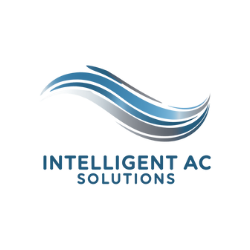Indoor Air Quality (IAQ) refers to the condition of the air inside buildings, particularly in relation to the health and comfort of the occupants. In the context of air conditioning units and installation, IAQ is a critical factor that can significantly impact the effectiveness of HVAC systems. Properly functioning air conditioning units not only regulate temperature but also play a vital role in maintaining good IAQ by filtering out pollutants, allergens, and excess humidity. When air conditioning systems are installed correctly, they can help ensure that the air circulating within a space is clean and safe to breathe.
Several elements contribute to IAQ, including ventilation, humidity levels, and the presence of indoor pollutants. Air conditioning units equipped with high-quality filters can trap dust, pollen, and other harmful particles, thereby improving the overall air quality. Additionally, modern systems often include features like dehumidifiers, which help control moisture levels, preventing the growth of mold and mildew that can adversely affect health.
To achieve optimal IAQ, it is essential to consider the installation of air conditioning units carefully. This includes selecting the right size unit for the space, ensuring proper ductwork, and scheduling regular maintenance. Regular maintenance checks can help identify and resolve issues that may compromise IAQ, such as dirty filters or malfunctioning components.
In summary, IAQ is a crucial aspect of air conditioning that directly affects the well-being of occupants. By prioritizing IAQ during the installation and maintenance of air conditioning units, homeowners and businesses can create healthier indoor environments, enhancing comfort and productivity.
Common Mechanisms
Indoor Air Quality (IAQ) is crucial for maintaining a healthy environment, especially in spaces with air conditioning units. Understanding common mechanisms that affect IAQ can help improve the air we breathe. One important mechanism is Filtration. Air conditioning units often come with filters that trap dust, pollen, and other particles, preventing them from circulating in the air. Regularly changing these filters is essential for optimal performance and cleaner air.
Another key mechanism is Ventilation. Proper ventilation ensures that fresh outdoor air replaces stale indoor air. This process helps dilute indoor pollutants and can be enhanced by using energy recovery ventilators (ERVs) that transfer heat and moisture between incoming and outgoing air streams.
Humidity Control is also vital for IAQ. Air conditioning units help regulate humidity levels, which can prevent mold growth and reduce allergens. Maintaining humidity between 30% and 50% is ideal for comfort and health.
Lastly, Regular Maintenance of air conditioning systems is crucial. Routine checks and servicing can identify issues like refrigerant leaks or mold growth in ducts, which can negatively impact IAQ. By understanding these mechanisms, homeowners can take proactive steps to ensure their indoor environments remain healthy and comfortable. Moreover, regular maintenance can also help extend the lifespan of the air conditioning system and improve its overall efficiency, potentially saving homeowners money on energy costs in the long run. Additionally, for minor issues that may arise, such as quick fixes for red light blinking, regular maintenance can help identify and address them before they become larger, more costly problems. Overall, prioritizing regular maintenance for air conditioning systems is essential for maintaining a healthy and comfortable indoor environment.
Related Factors
Indoor Air Quality (IAQ): This term refers to the quality of air within buildings, particularly as it relates to the health and comfort of occupants. In the context of air conditioning units, IAQ is significantly influenced by how well the system filters and circulates air. Proper installation and maintenance of air conditioning units can greatly enhance IAQ.
Filtration Efficiency: This factor measures how effectively an air conditioning unit removes particles from the air. High-efficiency filters can capture dust, pollen, and other allergens, improving overall IAQ. Regularly changing these filters is crucial for maintaining their effectiveness.
Humidity Control: Air conditioning units help regulate indoor humidity levels. High humidity can lead to mold growth and discomfort, while low humidity can cause dry skin and respiratory issues. A well-installed unit should maintain optimal humidity levels for health and comfort.
Ventilation: This refers to the process of bringing fresh outdoor air into the indoor environment. Proper ventilation is essential for diluting indoor pollutants. Air conditioning systems should be designed to allow for adequate ventilation without compromising energy efficiency.
Airborne Contaminants: These include pollutants such as volatile organic compounds (VOCs), dust, and pet dander. Effective air conditioning systems can help reduce these contaminants through proper filtration and ventilation, contributing to better IAQ.
